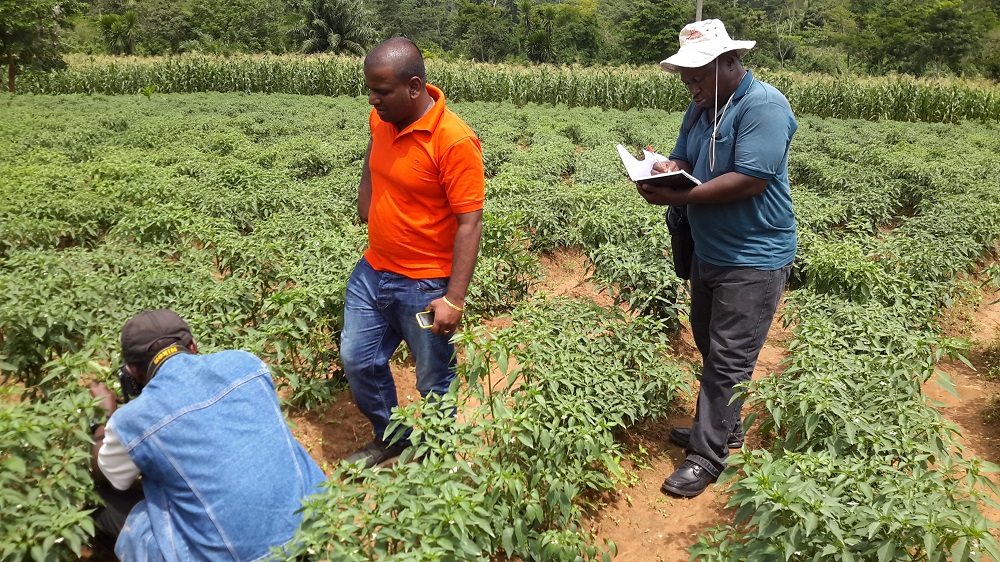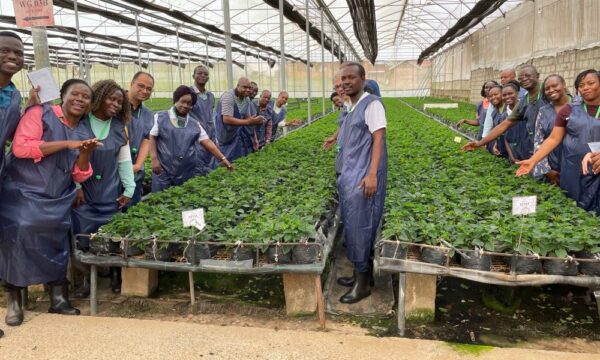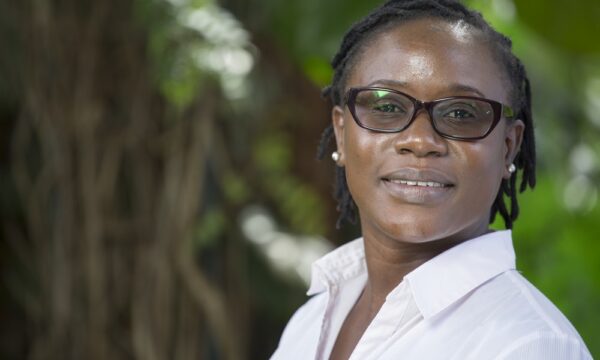
Stakeholders in the implementation of a project to deal with interceptions of vegetable produce from Ghana to the EU market because of harmful organisms have hailed the positive impact of the project on exports.
Speaking at its closure meeting, the stakeholders lauded the contribution of the project in reversing the trend of high interceptions and restoring the hope of farmers.
The interventions contributed to a reduction in interceptions of harmful organisms in commodities exported to the EU markets from a peak of 330 in 2014 to 11 in 2020.
Dubbed the “Strengthening the horticulture sector in Ghana to enhance exports to the EU” – FDOV Project was in response to the challenges in the horticulture sector.
According to Dr Victor Attuquaye Clottey, Regional Representative of CABI in West Africa, this project was requested by the Plant Protection and Regulatory Services Directorate (PPRSD-MoFA) in 2014 to develop a functioning phytosanitary system for the country”. He further explained that the project was executed through a Public-Private Partnership led by CABI using a multi-stakeholder approach involving the government, commercial farmers, exporters and Dutch importers to overcome some challenges of the horticulture sector.
It was co-funded by the Netherlands Facility for Sustainable Entrepreneurship and Food Security (FDOV) with the project partners being CABI, Plant Protection and Regulatory Services Directorate (PPRSD)/MoFA, Ghana Association of Vegetable Exporters (GAVEX), Quarcoo Initiatives Co. Ltd (Quin Organics) and EOSTA B.V.
The overall objective of the project was to increase the export of horticulture products from Ghana to the EU through, phytosanitary systems development, good agricultural practices, proper business conduct, infrastructure development, compliance with international standards and knowledge sharing for value chain actors.
On key successes, the Project Manager – Walter Hevi of CABI, said the project worked with other stakeholders to establish an effective phytosanitary system supported by regulatory protocols, standard operating procedures and surveillance systems for the vegetable sector. All these promoted good agricultural practices in the vegetable supply chain.

It also worked to enhance compliance with production standards, implementation of management systems, availability of technical assistance for certification, infrastructure for sorting, inspection, packing and storage and relations based on proper business conduct between exporters and farmers as well as support the development of a new supply chain of organically certified citrus produce from Quarcoo Initiatives Co. Ltd. (Quin Organics) in Ghana to EOSTA B.V in the Netherlands.
In addition to the development of resource materials, the project carried out capacity trainings that benefited 1,565 varied actors including vegetable producers/exporters/out-growers, PPRSD inspectors and agricultural extension agents in good agricultural practices, phytosanitary measures and management of major quarantine insect pests including the false codling moth, whitefly, fruit fly, thrips, eggplant fruit and shoot borer, fall armyworm.
The project also renovated and constructed produce packing facilities based on a 50 per cent contribution from interested GAVEX members. So far, four packing facilities have been renovated to standard and are in use. Four newly-constructed ones are also in use while five others are currently under construction. It also assisted two companies to obtain GlobalGAP certification and three other companies in GlobalGAP documentations.
Expressing the positive impact the FDOV project has had on his business, the CEO of Quin Organics, Mr Samuel Nii Quarcoo, said, “Through the flexible marching funds facility the project provided, Quin Organics is in the process of constructing a modern standard packhouse for safe handling and packaging of our products to meet international export standards. He continued that “Quin Organics has also benefitted from the technical capacity building programmes of the project enabling us to meet international standards for exporting fruits and vegetables to the EU market and leading to significant increase in the export of some of our organic citrus products over the period.”
Another key intervention of the FDOV project was the procurement of various laboratory equipment for the PPRSD laboratory at Pokuase to aid in pest and disease diagnosis in the laboratory, field monitoring and data collections.
Commenting on the benefits her outfit enjoyed from the partnership with the FDOV project, the PPRSD representative at the meeting, Mrs Hannah Serwaa Nuamah highly praised the project for the immense contribution made to the operations of PPRSD by enhancing its human, logistical and operational capacity which has greatly helped in the effective delivery of its mandate.

“As a result of these key interventions resulting from successful collaborations between the project and its partners, the European Commission ban was lifted in January 2018,” Mr Hevi said.
In his concluding remarks, Dr Clottey urged the various stakeholders to use the experiences gained from the collaboration to influence the implementation of other projects to enhance success.
Additional information
Main photo: A field inspection takes place (Credit: CABI).
Background
Between 2011 and 2015, interceptions of Ghanaian vegetable produce in the EU market as a result of harmful organisms went up from 82 to a high of 291 in 2015. The highest interceptions of 330 were in 2014.
In October 2015, the European Commission decided to ban five plant commodities from Ghana into the EU market until the end of December 2016.
The five banned vegetables were chilli pepper, luffa/Ridge gourd, Bitter Gourd, Egg Plants and Bottle Gourd and the predominant harmful organisms intercepted between 2012 and 2015 were fruit flies, false codling moth, and white fly.
A follow-up audit was undertaken in September 2016 and a decision was taken by the European Commission to renew the ban by one year until December 2017.
It is estimated that Ghana lost 36 million dollars between 2015 and 2017 because of the ban.
Project page
See the project page ‘Phytosanitary system development for the vegetable sector in Ghana’ for more information.
Related News & Blogs
Transforming Bangladesh’s agriculture through new Trade Capacity Building Program
The CABI-led ‘Feed The Future (FtF) Sanitary and Phytosanitary System (SPS) Trade Capacity Building Program’ is helping Bangladesh align its agricultural practices with International Standards for Phytosanitary Measures (ISPMs) for greater food safety…
2 December 2024




